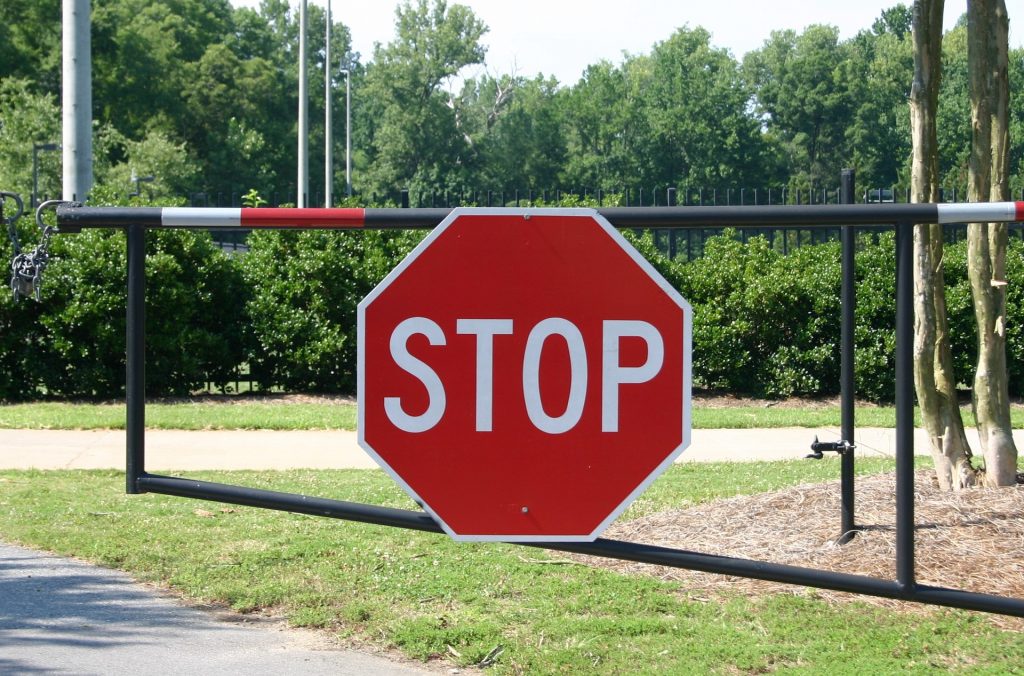 Public entities are treated as private entities when it comes to slip and fall situations. They must abide by a liability standard when a customer or employee slip and fall on their premises. The standard gives the public entity responsibility for things that they control. The standard is similar to the standard used in cases of slip and fall. In this case, the court considered whether a slip and fall on a public entity’s premises can lead to liability.
Public entities are treated as private entities when it comes to slip and fall situations. They must abide by a liability standard when a customer or employee slip and fall on their premises. The standard gives the public entity responsibility for things that they control. The standard is similar to the standard used in cases of slip and fall. In this case, the court considered whether a slip and fall on a public entity’s premises can lead to liability.
The Grotes were at a conference at the River Center Convention Center in Baton Rouge, Louisiana when Mrs. Grote tripped and fell on an elevation of one inch between two concrete walkway near the entrance of the River Center. After the incident, the Grotes filed a petition for damages against SMG, Federal Insurance Co., and the City of Baton Rouge. They argued that the defendants were liable for damages from the injury. The Grotes then filed a motion for summary judgment, arguing that the defect in the sidewalk was unreasonably dangerous. After the Grotes’ summary judgment, the City filed a summary judgment stating that the sidewalk was not unreasonably dangerous and was open and obvious.
In cases of slip and falls with a public entity, a motion for summary judgment is properly granted if the pleadings, depositions, answers to interrogatories, and admissions show that there are no genuine issues as to material fact and that the mover is entitled to judgment as a matter of law. The mover bears the burden of proving that he is entitled to summary judgment. He has the responsibility to demonstrate the absence of factual support for one or more essential elements of his opponent’s claim. La. C.C.P. art. 966. If the mover fails to prove his burden, the burden never shifts to the adverse party, and the mover is not entitled to summary judgment. LeBlanc v. Bouchereau Oil Co., Inc., 15 So. 3d 152 (La. Ct. App. 2009).
 Louisiana Personal Injury Lawyer Blog
Louisiana Personal Injury Lawyer Blog


 Although many people are aware that merchants are required to keep their premises reasonably safe, it can be complicated to establish what exactly constitutes unreasonable risk.
Although many people are aware that merchants are required to keep their premises reasonably safe, it can be complicated to establish what exactly constitutes unreasonable risk.  When writing leases, it is important to pre-determine who is at fault if an accident or injury occurs on the rented land. Yet, this determination can become complicated when the border of the leased land comes into play. Other issues can involve the exact lease language which states whether one party is indemnified, or is free from having to pay damages. A case out of western New Orleans shows how damages and fee allocations for a horrific accident involving a loose metal gate depends on which lease governs, what clauses are met, and where fault should be allocated.
When writing leases, it is important to pre-determine who is at fault if an accident or injury occurs on the rented land. Yet, this determination can become complicated when the border of the leased land comes into play. Other issues can involve the exact lease language which states whether one party is indemnified, or is free from having to pay damages. A case out of western New Orleans shows how damages and fee allocations for a horrific accident involving a loose metal gate depends on which lease governs, what clauses are met, and where fault should be allocated. Freak accidents can happen in the most unexpected ways. When these life-altering events occur, it often affects more than the injured person. Depending on the circumstances, family members can receive compensation for non-physical injuries, such as loss of consortium (companionship).
Freak accidents can happen in the most unexpected ways. When these life-altering events occur, it often affects more than the injured person. Depending on the circumstances, family members can receive compensation for non-physical injuries, such as loss of consortium (companionship). Cyclists must follow the rules of the road, not only for their own safety, but also because if an accident occurs the cyclist’s rule breaking could affect recovery. When a car hits a cyclist, the injured party can sue for negligence and recover damages as long as the other party was at fault. Outside of New Orleans, at the intersection of Jefferson Highway and North Causeway Boulevard, one cyclist failed to recover damages because he did not follow cycling rules.
Cyclists must follow the rules of the road, not only for their own safety, but also because if an accident occurs the cyclist’s rule breaking could affect recovery. When a car hits a cyclist, the injured party can sue for negligence and recover damages as long as the other party was at fault. Outside of New Orleans, at the intersection of Jefferson Highway and North Causeway Boulevard, one cyclist failed to recover damages because he did not follow cycling rules. Terms of Sale commonly include an “escape clause,” which gives the buyer a way out of a contract if unplanned circumstances arise. It is often a lawyer’s obligation to ensure that this clause is present in a contract, because if the lawyer fails to include one, this could result in malpractice. However, in order to receive recovery from the malpractice, the aggrieved party must promptly bring a lawsuit. The Longs family of Long’s Preferred Products, Inc. in Alexandria, LA, learned this the hard way when they sued their lawyer in the Ninth Judicial District Court Parish of Rapides for not including an escape clause in a stock purchase.
Terms of Sale commonly include an “escape clause,” which gives the buyer a way out of a contract if unplanned circumstances arise. It is often a lawyer’s obligation to ensure that this clause is present in a contract, because if the lawyer fails to include one, this could result in malpractice. However, in order to receive recovery from the malpractice, the aggrieved party must promptly bring a lawsuit. The Longs family of Long’s Preferred Products, Inc. in Alexandria, LA, learned this the hard way when they sued their lawyer in the Ninth Judicial District Court Parish of Rapides for not including an escape clause in a stock purchase. Insurance plans and policies are often riddled with complicated jargon and loopholes to protect insurance companies from financial loss. These confusing insurance provisions can lead an individual to think he/she is covered in case of an accident, but many times leaves individuals unprotected. In one recent Louisiana lawsuit, a consumer’s expectations of coverage are shattered by the complexity of insurance provisions.
Insurance plans and policies are often riddled with complicated jargon and loopholes to protect insurance companies from financial loss. These confusing insurance provisions can lead an individual to think he/she is covered in case of an accident, but many times leaves individuals unprotected. In one recent Louisiana lawsuit, a consumer’s expectations of coverage are shattered by the complexity of insurance provisions. Timing and deadlines are important aspects of the judicial system. However, these specific guidelines are not familiar to most non-lawyers, which underscores the importance of having an excellent attorney represent you. The lack of an attorney can immediately put an individual at a disadvantage, as it did in one New Orleans woman’s case.
Timing and deadlines are important aspects of the judicial system. However, these specific guidelines are not familiar to most non-lawyers, which underscores the importance of having an excellent attorney represent you. The lack of an attorney can immediately put an individual at a disadvantage, as it did in one New Orleans woman’s case. Car accidents are unpredictable. Typically when you get in your car and drive, you do not think you are going to be involved in a life-changing automobile accident. For one Louisiana woman, a car accident got even more complicated when she was hit in a rental car by another rental car.
Car accidents are unpredictable. Typically when you get in your car and drive, you do not think you are going to be involved in a life-changing automobile accident. For one Louisiana woman, a car accident got even more complicated when she was hit in a rental car by another rental car. What does the common phrase “you got served” mean? You may have heard it in movies, or read it in books, and it is usually associated with the situation where someone shows up to a person’s house to hand them papers that give legal notice of a hearing. In fact, the United States Constitution requires proper service in order to guarantee fair due process. In the case of Brian Lewis versus the Baton Rouge General Medical Center (“BRGMC”), the notice procedure was complicated by the fact that Mr. Lewis failed to provide his current physical address. Mr. Lewis decided to bring a lawsuit
What does the common phrase “you got served” mean? You may have heard it in movies, or read it in books, and it is usually associated with the situation where someone shows up to a person’s house to hand them papers that give legal notice of a hearing. In fact, the United States Constitution requires proper service in order to guarantee fair due process. In the case of Brian Lewis versus the Baton Rouge General Medical Center (“BRGMC”), the notice procedure was complicated by the fact that Mr. Lewis failed to provide his current physical address. Mr. Lewis decided to bring a lawsuit